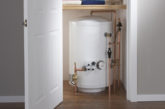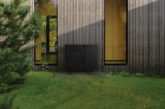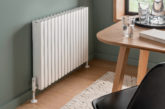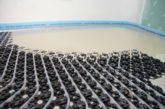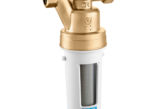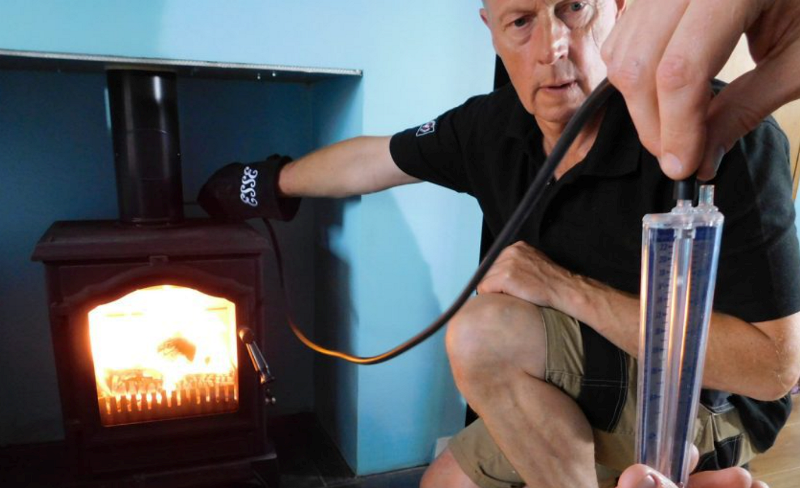
Bruce Allen, CEO for leading biomass and fuel heating organisations HETAS and Woodsure, is encouraging installers to help educate customers about the latest regulations and best ways to minimise their environmental impact when they seek out solid fuel as an alternative heating solution.
With climate change high on the agenda and the cost-of-living crisis persisting, we have seen an unprecedented demand for solid fuel heating. With more homeowners turning to it as a less expensive way to keep their homes warm, wood burning stoves continue to be an essential source of heat. With demand so high, we are calling on installers to help the planet by helping us to educate customers about burning fuel as efficiently, cleanly and sustainably as possible.
As stated in the new Environmental Improvement Plan 2023, domestic burning in England will continue for the foreseeable future. The government recognises that many households are reliant on solid fuel burning where other options may not be viable. However, the new ‘Emissions for air pollutants in the UK’ publication, released in February from Defra, highlighted an increase in burning wood for fuel by 124% between 2011 and 2021. Whilst we acknowledge the recent statistics, measures are already in place to tackle these harmful emissions – such as public education and the Cleaner Choice and ‘Ready to Burn’ schemes – and we are confident that, as a sector, we can dramatically reduce these emissions.
Cleaner choices
With an increasing number of technologies available, it is vital that we as an industry are never complacent in looking to embrace the latest innovations and promoting the cleanest appliances which will help homeowners lower their carbon footprint on the home front.
Launched just last year was our ‘Cleaner Choice’ appliance scheme. This sets a lower maximum emission level for particulates than the most stringent legislation requirement in current Smoke Control Areas within the Clean Air Act. Stoves must meet current exemption requirements to have attained a listing on the Defra website, whilst also achieving at least a 50% improvement on current particulate limits required for exemption.
Cleaner Choice is a voluntary scheme open to any manufacturer with the aim of raising consumer awareness through promotion of the best available technology and cleanest solid fuel burning appliances on the market. Alongside this, we only list those appliances that have been independently verified by HETAS as meeting at least a 50% improvement in particulate emissions.
Amongst the cleanest burning appliances are those which use good quality pellets as their fuel source. From our data, we see that most of the lowest PM emissions come from appliances fired by pellet; however, we know that they can be the least popular amongst homeowners. This is possibly due to households favouring wood burning stoves for the aesthetic effect of real flames. But this aesthetic, while traditionally immensely popular, is one approach. Wood pellet burning appliances range from traditional to ultra-modern. These highly efficient and cleaner burning appliances will have a place in our future if we’re to become a nation of net zero homes by 2050.
For those who are happy to focus on low carbon and cleaner burning technology over fashion, pellet-fired stoves can provide busy people with the same levels of convenience as gas central heating does. With new technologies that can provide effective combustion control and reduced emissions, pellet appliances really are a win-win situation for the industry, customers and environment alike.
Ready to Burn
Burning the right quality fuel is such a simple and easy way for households to reduce their carbon footprint. Yet sadly, many are unaware of the rules around this and are guilty of throwing any old wood in their appliances. Making it easier to burn cleaner fuel is ‘Ready to Burn’ a certification scheme administered by HETAS and Woodsure for Defra. This is where you can really help our cause: by advising your customers to look out for the Ready to Burn mark, they will be armed with the right information and able to easily purchase fuel which is compliant with emissions regulations.
The Air Quality (Domestic Solid Fuels Standards) Regulations, which now apply in England, aim to prevent harmful pollution from domestic burning of all solid fuels by ensuring wood sold in volumes of under 2m³ is certified as having a moisture content of up to 20%. Fuel quality plays a pivotal role in moving towards a cleaner and safer environment. Improving the standard of wood fuel in the UK is the Woodsure Quality Assurance Scheme.
As well as operating the Ready to Burn wood fuel scheme for Defra, Woodsure assesses and certifies the five most common types of wood fuel, each with different attributes and qualities that provide a flexible range of storage and use options appropriate to differing needs. By advising customers and businesses to purchase from a Woodsure certified producer, they can be assured that the producer has been checked and tested, and that the fuel is delivered at the correct standard for heating systems and appliances.
Whilst we work towards a power particulate emissions and zero-carbon future, we want to bring attention to the fact that solid fuel remains a vital energy source for many within the UK. Until the masses can move to renewable energy on the home front, we within the industry – installers and manufacturers alike – should do all we can to help people make better choices, helping us all move towards a cleaner, safer world.



